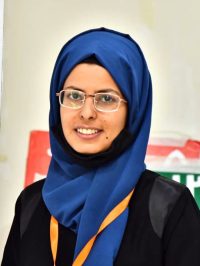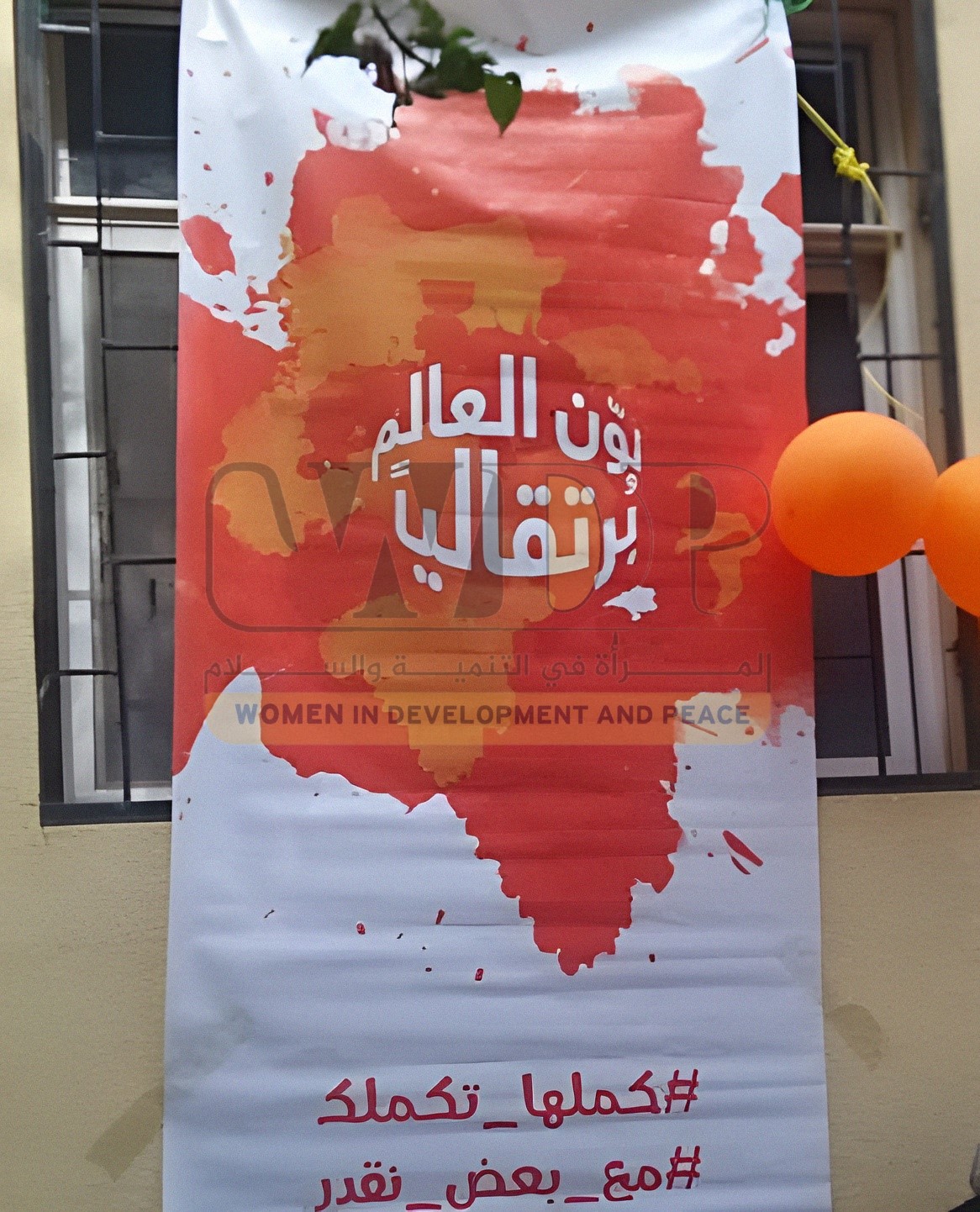Women in Development and Peace – Yasmine Abdulhafeez
Youth initiatives play an effective and influential role. They empower young people to participate and make changes in their small communities, especially in the cities where the initiative originates, through the volunteer work they provide in various fields, including humanitarian, health, social, and others.
Many youth initiatives have emerged in various regions of the country, especially those that have been severely affected by the conflict. Some of these initiatives provide food aid to citizens, while others implement awareness-raising workshops and programs that discuss social issues such as violence against women.
The importance of youth initiatives in Yemen lies in the fact that they are an easy way to reach communities most affected by the conflict, which are difficult for organizations and entities to access. Through these initiatives, aid can be delivered to the displaced and those most in need of assistance.
Youth Initiatives Concerned with Women’s Issues
Youth initiatives have worked to advocate for women by discussing their issues, raising their awareness, and exposing their suffering and the violence or deprivation of their rights to which they are subjected. They have also worked to implement training programs that help women raise their awareness of their rights and duties.
“Wi’am” youth initiative was established in 2019 in Taiz Governorate. It targets the deaf and mute community, discusses their issues from all aspects, and seeks to convey their voices to the concerned authorities and decision-makers. It also aims to shed light on their contributions and role in society, as they are one of the marginalized groups that suffer from a lack of adequate support.
“Wi’am” youth initiative has implemented many activities that have worked to confront violence against women by holding workshops and training programs that aim to raise their awareness of the importance of protecting themselves from various types of violence. One of the most prominent of these activities was holding a training course for 20 deaf girls in Taiz Governorate in the field of digital security to protect them from electronic blackmail in April 2023.
Yemeni media outlets considered this training to be the first of its kind in Yemen. Its most prominent outputs were the production of awareness-raising videos and flash drives about digital safety in sign language, in addition to designing awareness-raising brochures about the dangers of hacking their phones and the appropriate ways to protect them, in order to avoid falling victim to the blackmail that has become widespread in recent years and threatens women and girls. The training also addressed how to deal with threats they may face from blackmailers.
The initiative also implemented a training workshop on gender-based violence, which targeted 22 women and girls in one of the sub-districts of the Al-Shamayatayn District in the governorate. The workshop addressed many issues of violence, such as deprivation of inheritance, child marriage, verbal harassment, deprivation of girls from education, psychological and physical abuse, and other issues.
In 2020, the initiative created a Facebook page on which it published many educational videos in sign language that included awareness-raising for women and girls about digital safety and how to protect their phones, avoid opening pictures and videos sent from unknown numbers, and not activate the automatic media download feature. It also published awareness-raising clips about the importance of choosing appropriate passwords for applications and personal accounts that keep the information contained in them protected and safe from any hacking.
“For Her” youth initiative has implemented many activities that serve women through training programs and awareness-raising campaigns. It targeted women in many aspects, including girls’ education, blackmail, deprivation of inheritance, and early marriage.
The initiative has implemented many awareness-raising campaigns through field visits and awareness-raising about the dangers of gender-based violence, and through field visits targeting centers, associations, and mosques. These campaigns found a response from individuals in the targeted communities, as confirmed by Amat Allah Abdallah, the head of the initiative.
She added in her interview with Women in Development and Peace newspaper: “Among the achievements of the initiative in confronting violence against women is saving a minor girl from marriage by visiting the family and educating them about the dangers of early marriage. We found a response from the girl’s parents.”
The Role of Initiatives in Combating Violence Against Women
Ahd Yaseen, a journalist and civil activist, says: “Young people have a strong role in combating violence against women in Yemen due to the awareness that has been growing in recent years. However, fighting violence against women still requires greater efforts from members of the community.”
Regarding the role of youth initiatives, Ahd explains that they play a role in shaping sufficient awareness about women’s rights and the necessity of combating violence against them. However, these initiatives face many challenges that hinder their activities, such as customs, traditions, the country’s situation, and the society’s view of these initiatives, claiming that they promote ideas that encourage women to rebel against societal norms.

On her part, Hanin Al-Zakri, from the Shiryan Al-Ataa Initiative for Rural Development, states: “Youth initiatives in Yemen have played an active role in the absence of state institutions, focusing on raising awareness and achieving development in society, analyzing cultures and traditions to eliminate incorrect practices that women face, such as reproductive role constraints and lack of engagement or participation in the labor market.”
She emphasizes the importance of youth initiatives in addressing the phenomenon of violence against women in Yemen by enhancing awareness of forms of violence, such as early marriage, domestic violence, and psychological violence, and the importance of raising awareness about gender equality and promoting social justice for all.
She believes that the different cultural traditions that influence individuals’ opinions and behaviors, along with the lack of support and funding, are among the main challenges these initiatives face. She offers some suggestions that will contribute to supporting youth initiatives and their participation in combating violence against women, such as the importance of organizations collaborating with youth initiatives, facilitating grant criteria, as these initiatives are energetic and capable of working, being consistent, and innovating to positively impact their communities, involving youth initiatives in monitoring and evaluation to measure activity effectiveness and provide recommendations to overcome challenges. Meanwhile, Rawan Ihab Abbas, the Human Resources Manager at PASS Foundation for Sustainable Communities, states: “Youth initiatives play a significant role in educating women and informing them of their rights to empower them to protect themselves and confront violence in any form.”
She also points out that the importance of protecting women from violence comes through providing trained staff to educate women on appropriate ways to deal with different forms of violence and resolve issues without being affected by them.
Ibrahim Al-Ghazali, from Da’im Initiative, says: “Youth play many influential roles by using their voices and capabilities to advocate for women’s issues and needs, raising awareness to reduce the risks they face in terms of health, social aspects, and economy, intervening to reduce the severity of violence, pressuring decision-makers to address their situation and involve them in decision-making positions. We have recently witnessed many decisions that have contributed to appointing women in institutional offices of state agencies.”
Al-Ghazali explained to Women in Development and Peace newspaper that the initiative worked on involving young girls in community activities by at least 60% of the team’s composition, and several awareness programs were implemented over the past years to reduce exclusion, discrimination, and marginalization of women.
He added that they recently implemented the “Active Communities” program, which targeted the issue of violence based on gender, in partnership with some youth components, such as “Takattul Wahaj” and “Civil Voices,” targeting one of the social issues related to violence against women, allowing community initiatives to play a significant role.
He explained that the initiative supported advocacy and awareness campaigns to reduce the risks of sanitation in marginalized and vulnerable communities. The overflowing sewers and climate changes have affected women and led to various forms of violence, such as girls and female students not attending schools, an increase in domestic violence towards housewives due to the additional burdens resulting from poor health services. Therefore, advocacy and awareness activities played a greater role in intervention.
He adds: “Currently, we are working on a project aimed at improving health and security services for the marginalized and vulnerable group in Cairo district in Taiz, maintaining some health facilities that alleviate violence against marginalized girls, in order to achieve the desired change.”
He pointed out that the lack of funding for youth initiatives was the biggest obstacle they faced, and the absence of projects enabling them to work institutionally made them vulnerable to suspension. Even in cases of resilience, they may not meet the requirements before donors obtain funding that suits their ambitions.
Continuing his speech: “There are many difficulties facing the work of initiatives, such as family pressures that increase day by day on individuals and families, lack of abundant funding sources, digital and technological developments that complicate the efforts of initiatives, and obtaining devices that suit their work in keeping up with media and digital means, in addition to the difficulty of movement and mobility for security and legislative reasons.”
On her part, journalist Nahid Ahmad says: “The youth in our country seek to be active partners in developing and promoting their communities, especially regarding the gender equality agenda and eliminating all forms of violence against women.”
She believes that society needs the capabilities and skills of these youth to achieve gender equality by calling for the respect of women’s rights and enacting laws that protect women and girls from gender-based violence, by making positive changes in societal categories.
She adds: “Youth initiatives, participating in regional and local workshops and advocacy campaigns to eliminate violence against women and girls, represent a valuable opportunity for young men and women to meet, plan, organize, and contribute by proposing the necessary interventions to address women’s issues, and work on gender issues effectively, especially in terms of ending violence against women and girls.”
Regarding the challenges facing youth initiatives, she says: “The lack of societal acceptance of initiatives’ work, women’s negativity in defending their rights and demanding them, the political and economic situation our country is going through, and the lack of political powers adopting these initiatives, have all led to many of them not continuing their work on the ground.”
Activists believe that violence, in general, has increased in recent years due to the decline in ethical awareness and the increase in psychological, economic, and social pressures on society members. The importance of initiatives comes through spreading positivity and combating violence in its various forms through awareness and conducting seminars on gender-based violence.
Others also considered youth initiatives an active element in societal components despite the challenges they face in terms of lack of appreciation for their efforts and disrespect towards the working youth, who are seen as merely reactive young people. Continuing to employ youth energy and train them in leadership effectively and continuously will have a tangible impact on expanding their efforts to serve all societal categories.

